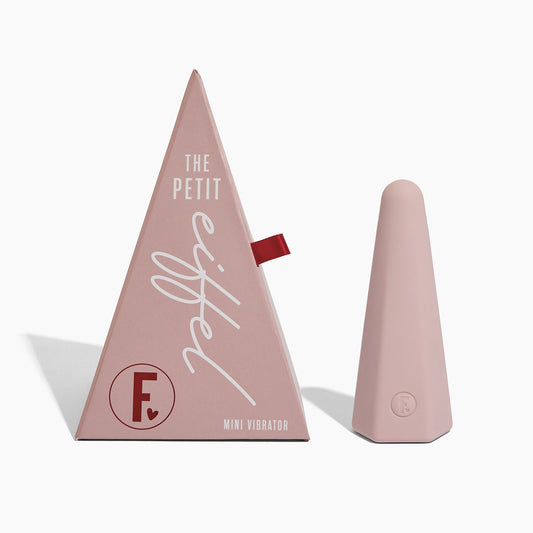why you should take up, or keep doing, this fun and safe, solo sexual practice
As the sex-positive movement continues to unfold and discussions around masturbation are becoming ever-more normalised, it’s time we had an open chat about why masturbation is good for us. Besides feeling great, it’s also super beneficial for our health. So, in celebration of everything that’s good for you, let me provide you with a little bit of education around why you should take up, or keep doing, this fun and safe, solo sexual practice.
Stress relief
When you masturbate, you become aroused, and for some people, you orgasm. These two processes trigger a number of chemical and hormonal reactions that induce a state of calm and relaxation in your mind and body. One of these is oxytocin, also known as the bonding chemical and is responsible for making you feel attached and connected with your partner during and after sex. While solo masturbation obviously involves just you, the other benefits you can reap from the release of oxytocin is a reduction in cortisol, the hormone involved in stress. Oxytocin, in conjunction with vasopressin, also induces a state of sleepiness. So basically, following a masturbation session you can expect to feel calm and sleepy. Sounds pretty great to me! But it doesn’t stop there.
Masturbating also releases endorphins, which targets the same neural networks as prescription opioids. When these pathways are activated you experience pain relief, leading to a period of blissful pain-free pleasure. Turns out you don’t need a degree in medicine or a prescription to induce pain relief. Just masturbate!
Learn about your body
Another huge benefit of masturbation is gaining an understanding of your anatomy. By feeling around and experimenting, you can get to know your genitals and the rest of your body. You can learn about which ways you like to be touched, where you liked to be touched, and the speed, pressure and sequence of your preferred touch. You can also learn about how long it takes you to orgasm – if that’s important to you. On the contrary, you can also learn about how you don’t like to be touched and the areas on your body that feel neutral or dissatisfying when they are stimulated.
And what happens when we know these things? We can communicate them during partnered sex! This takes the guessing work out of partnered play, so your partner doesn’t have to fiddle around your genitals using the trial and error method. Instead, you’ll know what you want, so you can gently show them the way. It’s simply more efficient sex. And, it can also boost your sexual confidence because you know what you want. Just like any other form of education can be empowering, gaining body literacy really equips us with the tools and knowledge to handle sexual experiences with a sense of control. When you know what you’ve got, you know how to use it.
Experience pleasure
When we masturbate, just like having partnered sex, our brain releases dopamine. This is the neurochemical that activates your reward pathways, leading you to feel pleasure, which in return motivates you to continue activating the pathway. In other words, because it feels good, it leads you to continue masturbating in order to produce more pleasure. This is the same as eating great food, listening to music, and dancing at a festival. All of these activities also activate the reward pathway and you can expect to experience a similar feeling of pleasure to when you masturbate. However, lets be honest, sex and masturbation are a special kind of pleasure-producing activity that seriously blow these other activities out of the water on the pleasure scale.
While this is in reference to the biological side of masturbation, on a sensory level, you can also explore with different types of pleasure. Using your finger, you could try flicking, tapping, pushing, tickling, caressing or scratching during your solo session. You could also explore different erogenous zones or different forms of sex that don’t align with commonly held, stereotypical ideas of sex. This might include slow masturbation, contactless orgasms or erotic dancing. As much as we love a solo-quicky, there’s really a whole world of pleasure that a person can explore during masturbation.
"when we masturbate the brain releases dopamine, which activates reward pathways, leading you to feel pleasure, which in return motivates you to continue activating the pathway"
Gain sexual autonomy
Another big advantage of masturbation is that you can get yourself off wherever and whenever (within reason of course), without having to rely on anybody else. This is particularly important for some women, who might have been socialised under the narrative that they shouldn’t masturbate and that their pleasure is only up to their partner to deliver. This is old, boring, news. As I think I’ve made quite clear, masturbation is incredibly beneficial, so you shouldn’t have to miss out on it because you’re waiting for somebody else.
When you’re becoming aroused or experiencing an orgasm, your mind and body can’t tell the difference between whether you’re engaging in solo or partnered play. So, if you’re feeling sexually frustrated, stressed, wired, anxious, or bored, rub one out for yourself hunni, its good for you and your body will thank you for it.
If you weren’t already convinced that masturbation is the best thing ever, I’m sure you’ll be so now. No matter your genitals, gender, stage of life, or relationship status, masturbation is a great practice that everybody should add to their wellness routine. We can’t let silly taboos get in the way of our wellbeing. Let the science speak for itself – masturbation is good for you.





